Washington
Latest

Reviewing election cybersecurity in this week's primary states
Since learning of Russia's attempts to hack into the elections systems of 21 states during the 2016 US presidential race, legislators have been on high alert. Cybersecurity experts have warned it's likely the Kremlin will attack again, and already it's been caught attempting to infiltrate legislators' computers and use phony social media accounts to influence the outcome of 2018 state primaries. Four states are holding elections on Tuesday -- Kansas, Michigan, Missouri and Washington -- and some lawmakers are doing more than others to protect their systems against cyber attacks. Here's a breakdown of each state's approach to elections cybersecurity, as of August 2018:

Seattle judge blocks release of designs for 3D-printed guns
Today U.S. District Judge Robert Lasnik granted a temporary restraining order sought by eight state attorneys general and the District of Columbia to block the sale of designs for 3D-printed guns. Based on a settlement between Defense Distributed and the US Department of State, they could have gone on sale starting tomorrow, but now that is on hold. In both the House and Senate, bills were introduced today to block the sales, and this morning the President tweeted the plan "doesn't seem to make much sense!" The New York Times reports that in his ruling, Judge Lasnik said there are First Amendment concerns, but said the states had established a "likelihood of irreparable harm." State AGs argue that the Trump Administration's settlement "gives criminals and terrorists access to downloadable, untraceable and undetectable 3D-printed weapons." White House spokesperson Hogan Gidley said to the AP that the administration would "will continue to look at all options available to us to do what is necessary to protect Americans while also supporting the First and Second amendments."

Facebook deal with Washington ends ad filtering for ethnicity
Washington Attorney General Bob Ferguson announced today that Facebook has signed an agreement that will prevent advertisers promoting housing, credit, employment, insurance or businesses open to the public from excluding individuals from seeing their ads based on that person's race, creed, color, national origin, veteran or military status, sexual orientation or disability status. The agreement concludes a 20-month investigation conducted by the state's attorney general's office. While the deal makes these changes legally binding in the state of Washington, Facebook already implemented them broadly back in April.
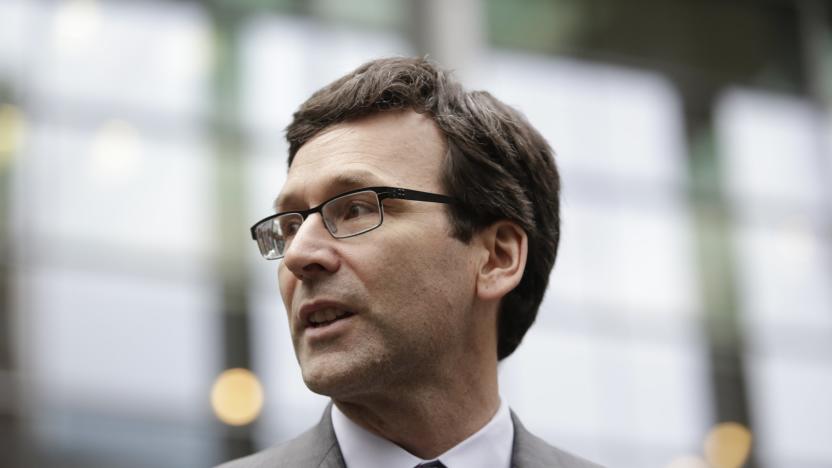
Washington state sues Google and Facebook over political ad records
The state of Washington is suing Facebook and Google over their failure to provide records on political ad buyers. Local law requires that advertisers collect and store a variety of information on political advertising, including the name and address of the buyer, the total cost, and the name of the candidate, party or proposal that is being supported or opposed. The lawsuits, filed by the office of Attorney General Bob Ferguson, claim that Facebook and Google have been slipping up since 2013. They propose fines and injunctions against both companies. "Washingtonians have a right to know who's paying for the political advertising they see," Ferguson said.
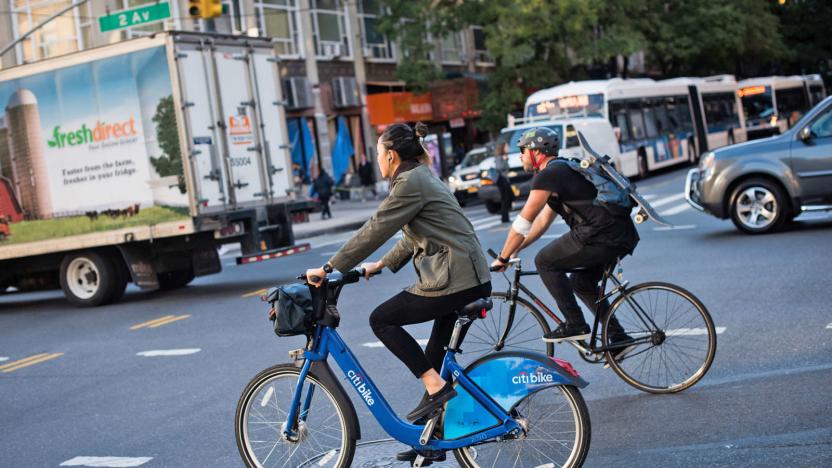
Google’s Sidewalk Labs made the ultimate public transport guide
Google's parent company, Alphabet, has an offshoot called Sidewalk Labs tasked with improving urban living. The division gave birth to Coord, a spin-off which is launching a smart route planner today for people in New York City and Washington DC. The web app supports multiple modes of transportation -- bus, subway and bike rentals -- and will recommend different combinations based on live, street-level data. It's a unique blend -- other navigation apps don't include dockless bike sharing services such as Spin and Jump. That means you can quickly locate the nearest two-wheeler and judge whether it would be quicker to take the bus or tube.

Waze brings its ride-sharing app to Washington state
Waze's Carpool app, which connects those who need a ride with those willing to give them and charges riders a small fee to cover the drivers' costs, has so far only been available in California, Texas and Israel. But today, the company announced that Carpool has arrived in Washington state. The expansion comes after a recent update to the app that allowed users to select who they'll be riding with rather than being matched blindly. Riders and drivers can now make their decisions based on star ratings, profile information and connections to friends or their place of work. Waze also introduced the ability to filter by gender or limit riders to coworkers only.
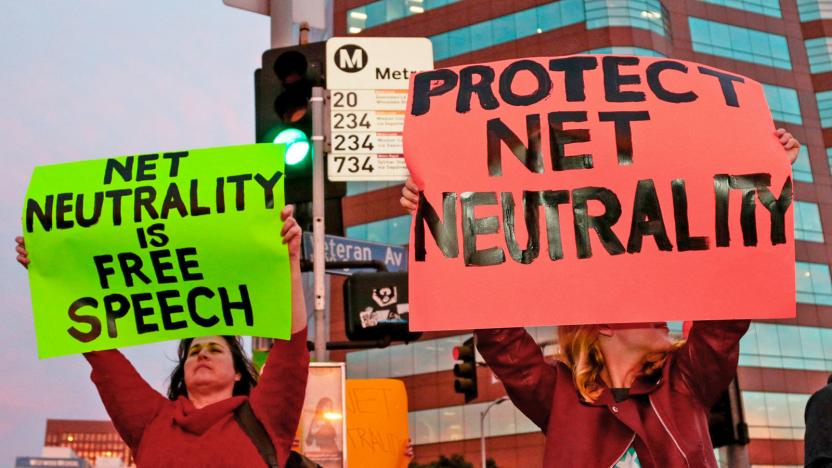
Washington is the first state to pass its own net neutrality law
Net neutrality is safe in Washington. Governor Jay Inslee has signed House Bill 2282 into law, which will expressly protect the state's residents from the rollbacks the FCC passed in December. The bill requires (PDF) any person selling broadband internet access to publicly disclose how it runs its network by putting things like network management practices on a "publicly available, easily accessible" website. That last bit is key -- the FCC tried obfuscating the comment page for Title II provisions last year.

Can legislation fix gaming's loot box problem?
Last year's gaming controversy has turned into this year's legislative battleground. Fans were outraged when Star Wars: Battlefront II launched with buyable loot boxes that unbalanced multiplayer combat, and other games like Need For Speed: Payback and Destiny 2 had their own pay-to-win controversies. Eventually, loot boxes unsettled enough constituents to rile their representatives. Legislators in Hawaii, Washington and Illinois have introduced bills to either study loot boxes or restrict access to young players, but how effective will they be? What else can lawmakers do?
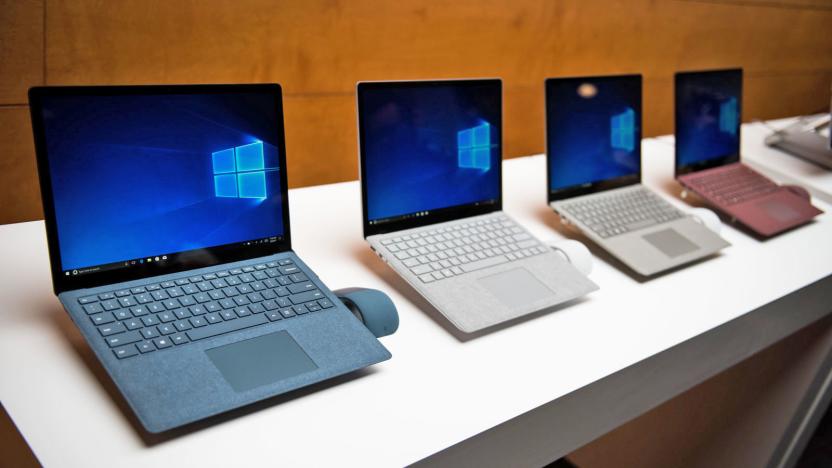
Washington state bill would make hard-to-repair electronics illegal
A number of states are considering right to repair bills, legislation which if passed would make it easier for individuals and repair shops to replace or repair electronics parts. Repair.org reports that 17 states have already introduced bills this year and while most aim to make repair parts and manuals accessible, Washington's proposed legislation would straight up ban electronics that prevent easy repair. "Original manufacturers of digital electronic products sold on or after January 1, 2019, in Washington state are prohibited from designing or manufacturing digital electronic products in such a way as to prevent reasonable diagnostic or repair functions by an independent repair provider," says the bill. "Preventing reasonable diagnostic or repair functions includes permanently affixing a battery in a manner that makes it difficult or impossible to remove."

State senator wants to regulate loot boxes in Washington
Despite its long-awaited single-player story and gorgeous graphics and sounds, Star Wars Battlefront II will likely be remembered for one thing: Loot boxes, or the mismanagement of. The game's rewards took so long to earn that players were incentivized to buy crates of randomized extras that could speed the process up...or not. That uncertain outcome paid with real money, which is becoming increasingly common in games, sounds like gambling to some legislators, and Belgium moved to ban SW Battlefront II-style loot boxes outright. This month, a Washington Senator introduced a bill that would require the state's gambling commission to determine whether loot boxes are, in fact, gambling -- and suggest how to regulate them across gaming.
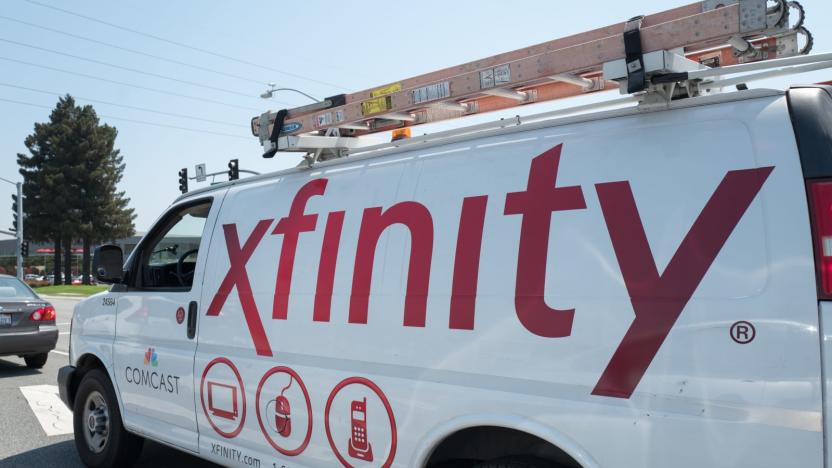
Comcast accused of enrolling customers in programs without consent
Subscribe to cable service for long enough and you'll probably run into lousy customer service at some point, whether it's technicians who don't show up on time or phone reps that won't let you cancel. However, Comcast's behavior in Washington might take the cake. The state's Attorney General has filed an amended complaint alleging that Comcast subscribed more than half of its Service Protection Plan customers without consent since the option was first available in 2011. It frequently enrolled customers without even mentioning the plan, according to the lawsuit, but the worst was when it did -- employees reportedly claimed the $6 monthly service was free, and would even sign people up after they'd explicitly refused it.

Washington state sues Uber over data breach
The lawsuits are continuing to pile on top of Uber after it revealed that it covered up a hack in fall 2016. Washington state's Attorney General has sued Uber for allegedly violating its local data breach notification law. Companies are supposed to notify the AG within 45 days if a breach affects 500 or more Washington residents, but that clearly didn't happen when Uber paid hackers to keep quiet. The state is demanding penalties of up to $2,000 for each person whose data was exposed, which should lead to a penalty in the "millions of dollars."

Study says body cameras don't always change police behavior
In theory, body cameras are supposed to not only catch police abuses of power, but deter them: officers will be on their best behavior knowing that they could be hauled in. As Washington, DC researchers have learned, though, that isn't guaranteed. They've published a study showing that body cameras didn't significantly affect officers' use of force or the number of civilian complaints in either direction. While there were actually 74 more uses of force per 1,000 officers when body cams were present, that's roughly consistent with a typical range of differences when the equipment comes into play. The changes could just easily be pinned on variances in crime rates, in other words.

The West Coast is finally getting an earthquake early warning system
On September 19th, 1985, Mexico City was devastated by an 8.0 magnitude earthquake that killed as many as 30,000 people and leveled buildings across the city, including the 12-story Hospital Juárez, one of the oldest hospital institutions in Mexico. In response, the government set about creating the world's first earthquake warning system. One that, when an 8.1 tremblor set in on the city September 7th of this year, and a second 7.1 less than two weeks later, saved potentially tens of thousands of lives by giving them more than a minute's notice to head to safety. So why doesn't America have one along its Pacific coast as well? Turns out we almost do.

Privacy group says Washington cyberbullying law is censoring instead
Anti-cyberbullying laws are noble, but attempting to punish online speech is tough. Digital rights group Electronic Frontier Foundation (EFF) claimed that Washington state's anti-cyberbullying legislation goes too far -- and ends up censoring speech instead.

Apple wants to sell iPhones out of an historic DC library
Apple is no stranger to the challenges of opening stores in historic locations, such as New York City's Grand Central Terminal. Its latest shop may be its most ambitious yet, however. The company has unveiled plans to convert Washington, DC's Carnegie Library into a retail store. The building hasn't been used as a book repository for a long time (it's currently shared between the city's Historical Society and the organizers at Events DC), but this would still be a vast undertaking. In the proposal, Apple would turn most of the Library into one of its shining beacons of modernity while (hopefully) respecting its 114-year legacy.
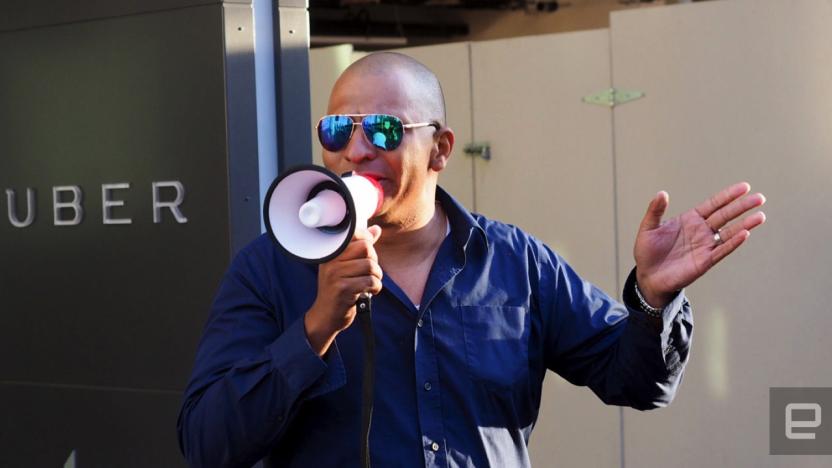
Seattle court strikes blow to Uber driver unionization efforts
A landmark decision by Seattle's city council, which would allow drivers for ride-hailing apps like Uber and Lyft to unionize despite being classified as independent contractors, has hit a snag according to a report from the Associated Press.
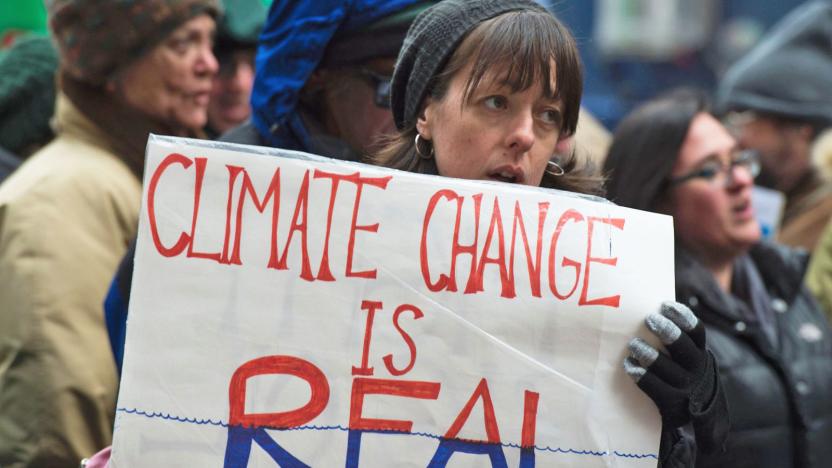
March for Science set for April 22nd
That hoped-for protest against President Trump's anti-science policies? It's on. The newly-named March for Science is now slated to take place on April 22nd -- appropriately, Earth Day -- in both Washington, DC and satellite protests worldwide. The demonstrations will primarily voice opposition to gag orders, funding freezes and other White House attempts to censor climate change science, but it also represents a broader call for politicians to make decisions based on evidence, rather than ideology or corporate agendas.
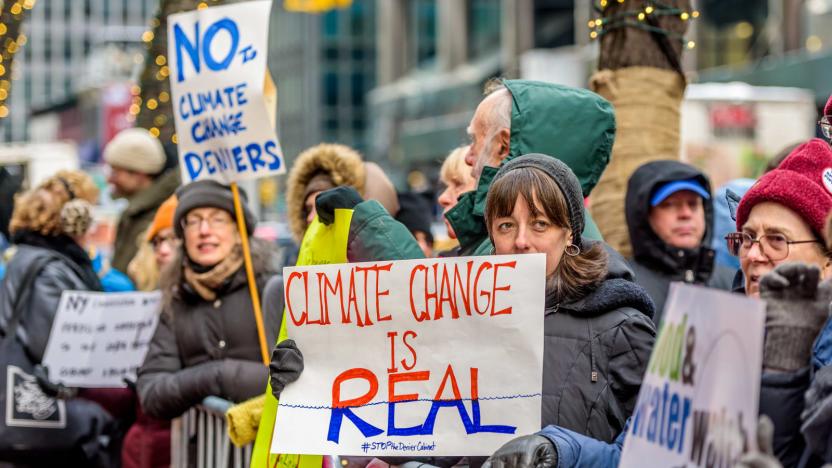
Scientists prepare their own march against Trump
The Women's March on Washington might not be the only big protest against Donald Trump's policies in the near future. Coordination is underway for a Scientists' March on Washington that, as the name implies, would rally support from anyone who believes that scientific facts should play a role in government policy, regardless of their political leanings. Don't like that Trump wants to censor climate change data or otherwise attempt to prevent scientific knowledge from reaching the public? This might be your chance to make your voice heard.

Washington state orders Valve to end 'Counter-Strike' gambling
For Washington state, it's not enough for Valve to distance itself from gun skin gambling in Counter-Strike: Global Offensive -- it wants the company to put an end to the practice. The state's Gambling Commission has ordered Valve to "stop allowing the transfer" of gun skins for gambling through Steam. The gaming giant has until October 14th to explain how it's obeying Washington gambling laws -- if it ignores the request or can't prove that it's squeaky-clean, it might face "additional civil or criminal action."







